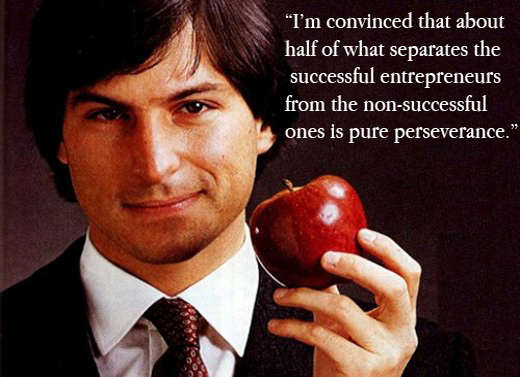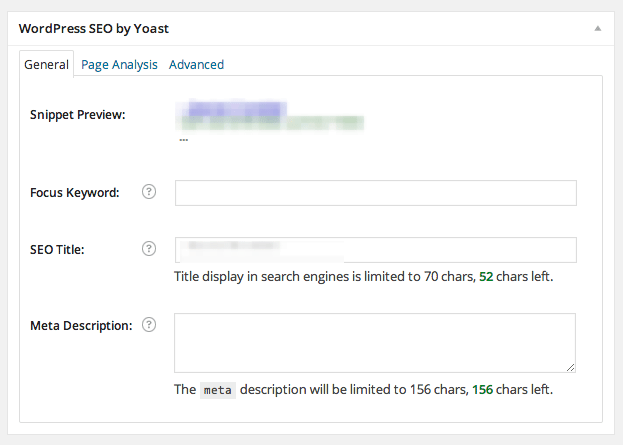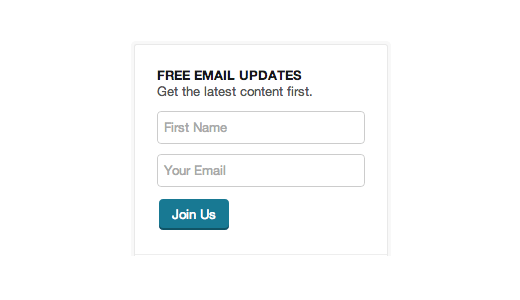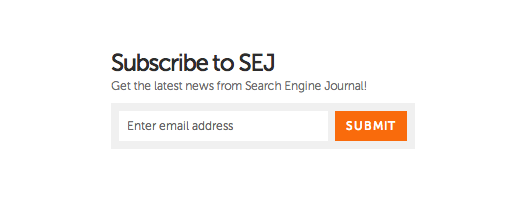http://blog.kissmetrics.com/seo-without-even-thinking/?utm_medium=email&utm_campaign=blog_newsletter&utm_source=pardot&utm_content=blog_post_7_08_14&utm_term=null
SEO can become second nature for you. Since SEO is one of the most important components of an online business, you need to be doing SEO automatically, reflexively, and instinctively. All the time.
So how do you get there? How can you start doing SEO automatically? How can you develop SEO reflexes? What habits and knowledge do you need?
Here’s your handbook to becoming an SEO expert without even thinking about it.
1. Make data omnipresent.
Data is the biggest ally of the SEO. Without data, metrics, numbers, and information, you cannot do SEO properly.
If you want to do SEO without even thinking about it, you need to saturate your online existence with SEO data. When you see relevant data wherever you go, you’ll be in constant SEO performance mode, and not even realize you’re doing it.
Here are a few specific ways to do that.
Mozbar
The Mozbar, integrated with my Chrome browser, helps put SEO information before me all the time. Whenever I google something with the Mozbar activated, here’s what I see:
Displayed on the every SERP entry is the PA (page authority) of a site, the number of links, and the DA (domain authority). This SEO data helps me intuitively analyze the respective SEO features of a site.
Use your SEO service or reporting tools.
Most people in the online marketing space are using some form of reporting data. There are a ton of SaaS companies and agencies that provide reporting platforms. If you have a subscription to such a service, use it on a routine basis.
If you don’t have any reporting service, use the following two sources:
1. Regularly check Google Analytics.
Analytics is free and ubiquitous. Chances are you already use it as part of your daily or weekly responsibilities. If not, go in and check around. The data is voluminous and valuable.
2. Do a once-weekly check of Google Webmaster Tools.
GWT is a treasure trove of information for the SEO. Google Webmaster Tools isnot just for webmasters. I recommend that you check in at least weekly to see any fresh alerts, and to take a look at your latest link data.
Bottom Line
Constantly be looking at SEO data. Force yourself to see it. It’s all about getting data before your eyes and in your mind.
2. Google.
You probably use Google already without thinking about it. With a bit of practice, you can become an SEO genius without even trying. Just do your regular Googling, and think about what you see.
One of my reflexive keyboard strokes is CTRL + T, which opens a new tab on my browser. My cursor is automatically positioned in the search bar, and I start typing. I perform hundreds of Google searches a day, and it hardly even cognitively registers that I’m searching.
SEO can become the same way. What you’re doing when you search Google is learning how the search engine works, thinks, performs, and returns results.
Google, Look, and Think.
Every search is a lesson in SEO. Every SERP is a lesson in SEO. The next time you google something, ask yourself these questions as you look at the search engine results page:
- Google: What did I google?
- Look: What do I now see?
- Think: What does this mean for search?
By asking yourself these questions, you’re able to determine the underlying processes of algorithm performance. You’re doing SEO without even thinking of it.
Let’s take an example. Let’s say you’re doing spring cleaning, and want to wash your pillows. You google it. (Note: My SERP below uses the Moz SERP overlay, discussed in the point above.)

Now, ask yourself the three questions.
1. What did I google? You googled a question, “how do I wash pillows”.
2. What do I now see?
- You see several sites with the title “how to wash pillows.”
- You see a pictured Google author profile. You also see a Google+ authorship profile without a picture (which may be going away for a while).
- You see a famous name (Martha Stewart) on a not-so-famous site (apartmentherapy.com)
- You see a popular how-to site.
- You see a blog, presumably with a lot of content (onegoodthingbyjillee.com)
3. What does this mean for search?
- Google authorship profiles are important.
- The pictured ones are even better.
- Popular sites rank well.
- Not-so-popular sites with lots of content rank well.
- Even sites that have middle-range DA levels but possess a lot of content rank well.
- Titles that advertise “pictures” can be appealing.
A simple query on a simple everyday cleaning task automatically becomes a lesson in search engine optimization. You can benefit even more from this daily habit by implementing the Mozbar SERP overlay.
A banal query like “how do I wash pillows” makes me want to forget about pillow washing and do a few other things:
- Optimize my Google+ authorship profile
- Blog like crazy.
- Add pictures to my content.
- Put something about “pictures” in the title of a blog article, and see how it performs in organic search.
Bottom Line
Google. Look. Think.
3. Create a schedule, and stick to it.
Content marketing is less about marketing genius, and all about raw, gritty persistence.
Steve Jobs said, “I’m convinced that about half of what separates the successful entrepreneurs from the non-successful ones is pure perseverance.”

The kind of persistence that pays off is the tough and sometimes unpleasant persistence of content marketing. I speak from experience.
Doing content marketing on a daily schedule is doing SEO without even thinking about it. A schedule helps to automate life. It makes things to happen that would normally be left undone. It reduces the mental burden of decision-making.
It lets you do SEO without thinking about it.
Since SEO is content marketing, and you’re making content marketing an automatic addition to your schedule, then you’re doing SEO without thinking about it.
Bottom Line
Make your editorial calendar, carve out a time each day, and do content marketing. SEO knowledge will grow.
4. Make meta a habit.
SEO inevitably gets around to meta tags, titles, descriptions, and all that jazz. Is it possible to do this level of SEO without even thinking about it?
You’re going to need a little help, though. The help that I’ve used has come in the form of the form of Yoast. Yoast is a plugin for WordPress that helps you to remember to add important SEO elements.
Depending on your CMS, there are a variety of other things that can help you to add SEO metas. The important thing is that you make it habitual.
Yoast is particularly helpful in this way. When creating a WordPress page or post, the Yoast plugin displays this:

Every time I go to create a new piece of content, I can’t help but enhance my SEO. I don’t even think about it. It even fills in some of the content automatically for me!
Bottom Line
Doing SEO without even thinking about it is about making habits. The habit you need to form is creating your metas. If you’re a WordPress user, try Yoast.
5. Stay up to date with SEO current events.
If you saturate your mind, email, and news feed with SEO information, the process of SEO becomes reflexive and second nature. You should incorporate SEO information into your daily intake routine.
Here’s what I suggest:
Email Subscriptions
1. Subscribe to Quicksprout. Plenty of good stuff here, coming at you plenty often.

Subscribe to the KISSmetrics blog. Another great source of actionable information.

Subscribe to Search Engine Journal. As one of the premier search engine information sources, this publication will give you up-to-the minute information on SEO.

Subscribe to Search Engine Land. SEL also has authoritative information on SEO that will help to bring the information directly to your inbox.

Social Follows
In addition to email updates, it’s helpful to introduce SEO information to your social media feeds. You can follow the sites mentioned above, or find other ones. I’ve found that following SEO leaders on Google+, Twitter, and Facebook help me to keep SEO information in my mental periphery.
When I’m in the know about SEO, it becomes less mentally stressful. Rather than worry about some new algorithmic fury being unleashed without warning, I hear rumblings about a forthcoming algorithmic update, or information on how to prepare for new changes in search technology. When I’m informed, I’m protected.
This consistent flow of news and information helps you to do SEO without consciously trying. You don’t necessarily have to read every publication, click every link, or research every topic. You just automatically remain aware.
Bottom Line
Subscribe to SEO publications in email and social media.
Conclusion
The pursuit of SEO excellence is something that you have to work at, but it can become second nature. As you hone your SEO skills, they will become so deeply embedded into your online habits that you don’t realize you’re doing them — checking DA levels, digging into the SERPs, and maybe even checking out source code on a whim.
This is what characterizes a good SEO, and that’s exactly what you can become.
The truly amazing thing is, these second-nature skills have direct impact on your business. If you’re automatically doing SEO on your own site, and viewing your competitor’s site through SEO lens, you’ll become really, really good at what you do. Your own site’s SEO will be evolving and advancing to the point where you are dominating your niche, and beating the competition.
Welcome to the world of doing SEO without even thinking about it.
What SEO practices are you doing without even thinking about it?

No comments:
Post a Comment